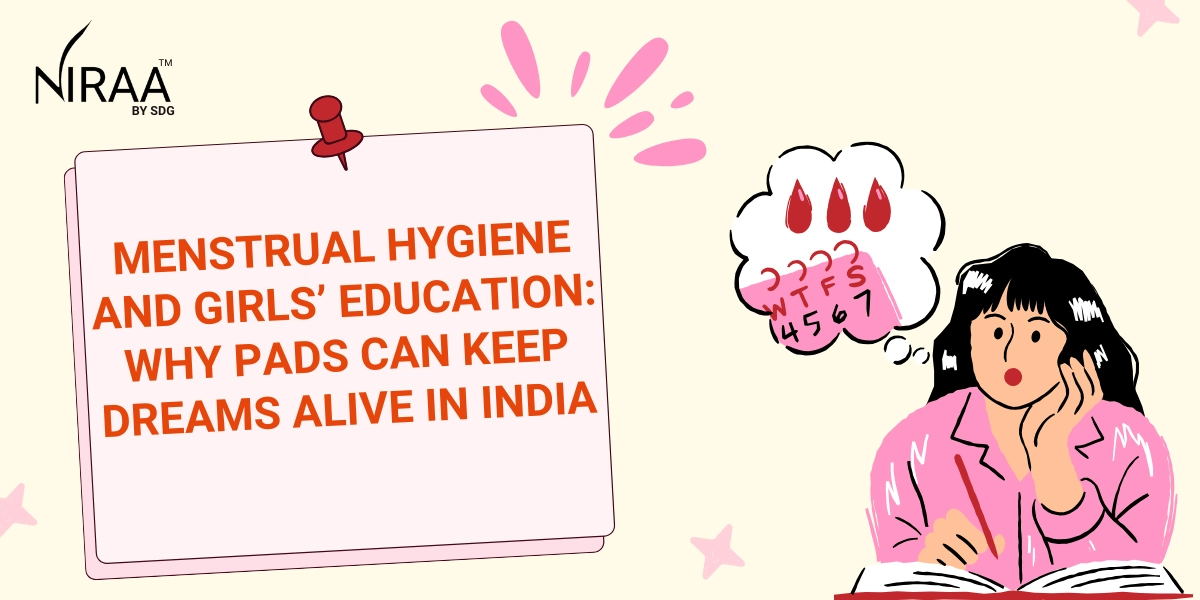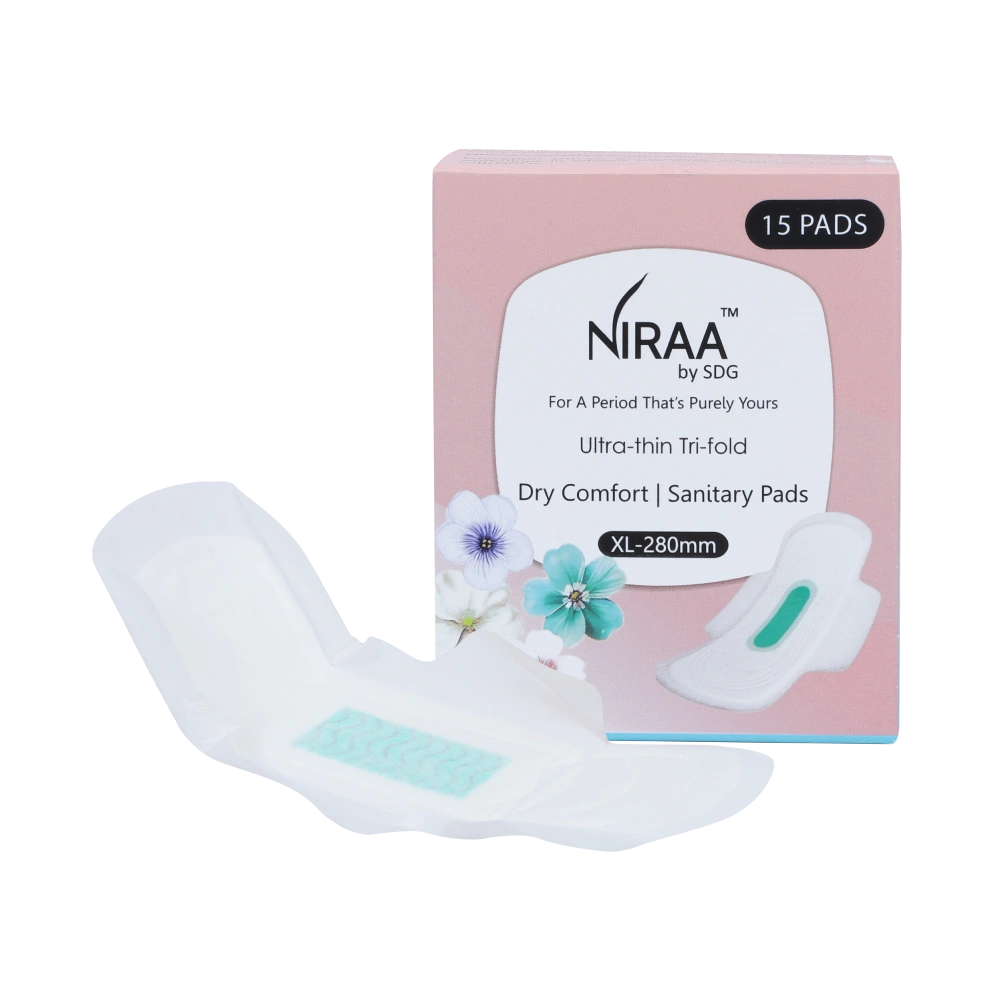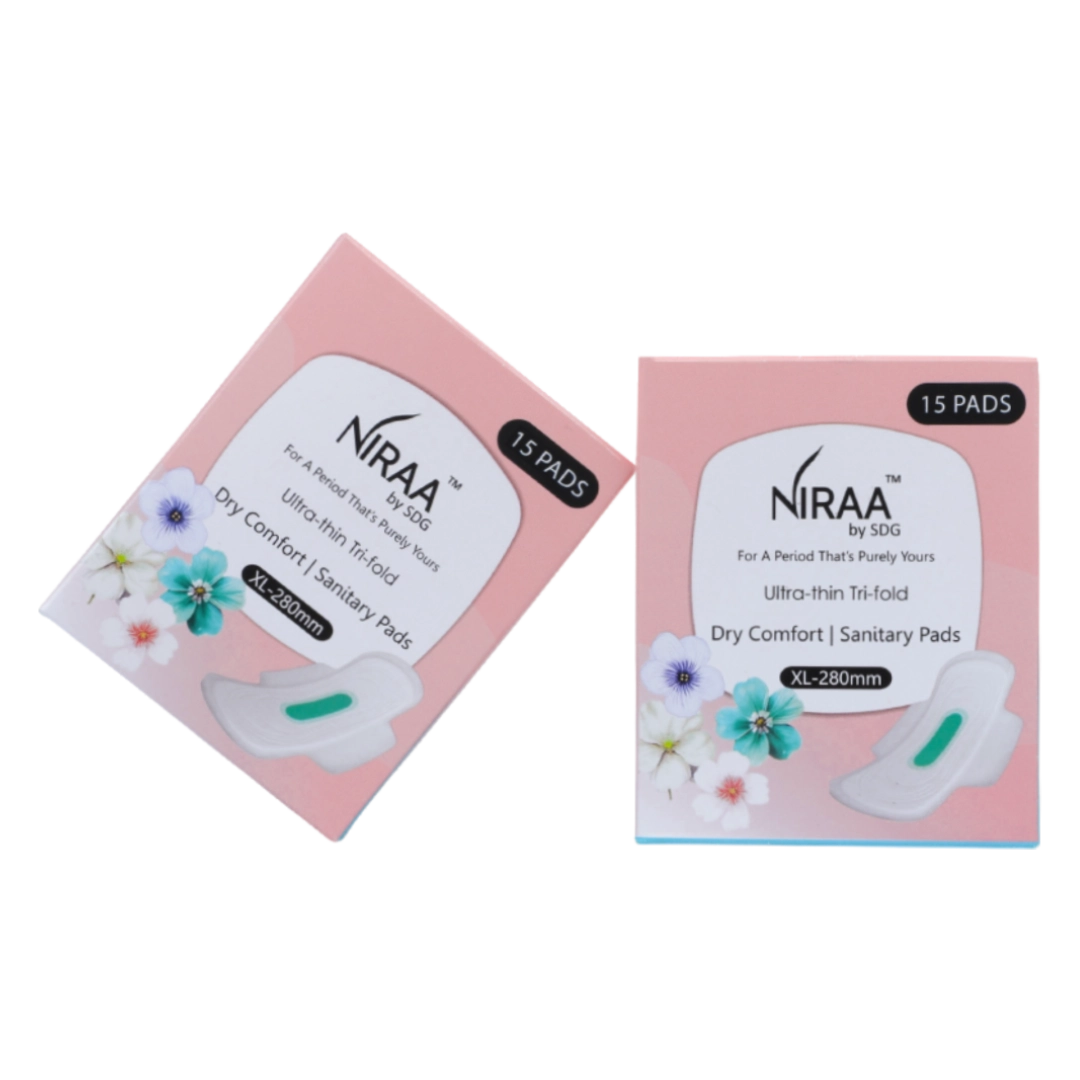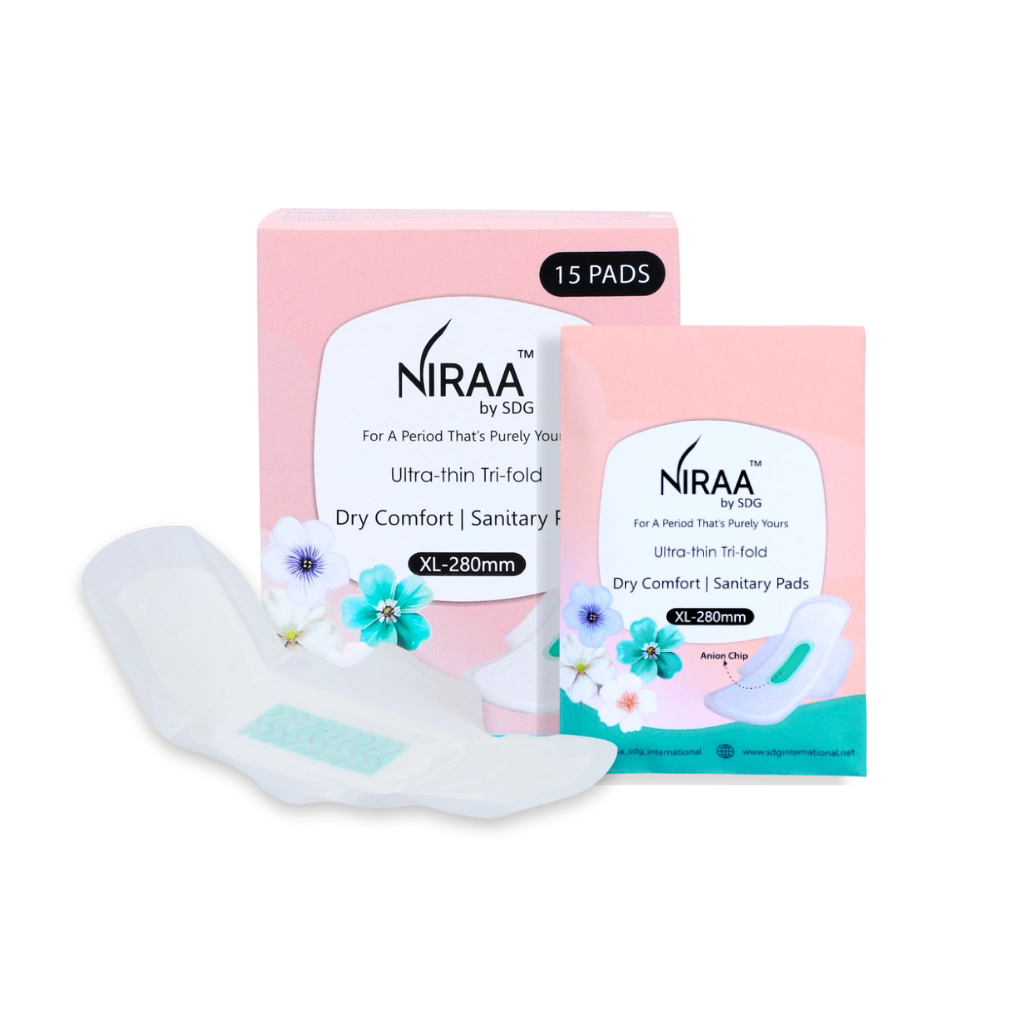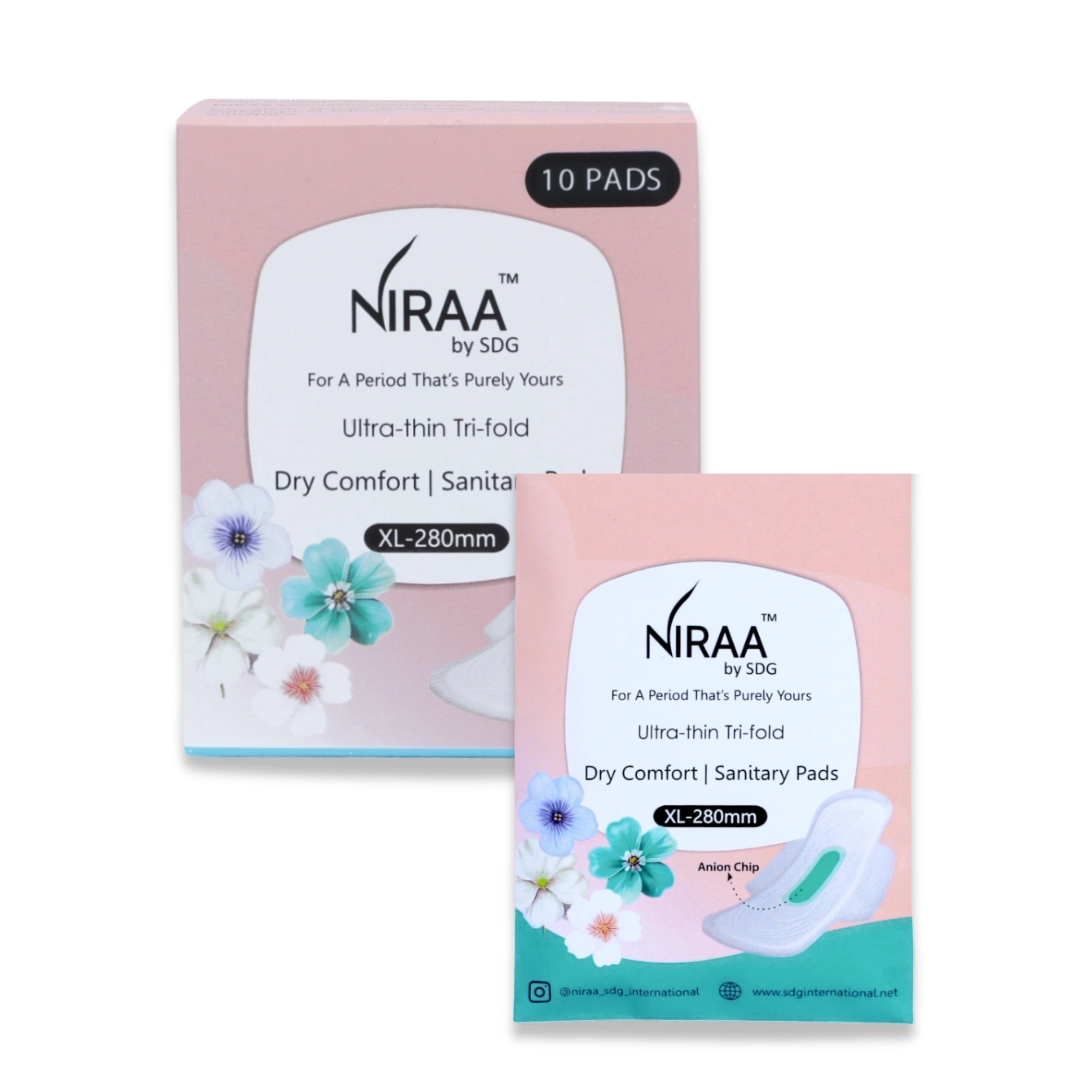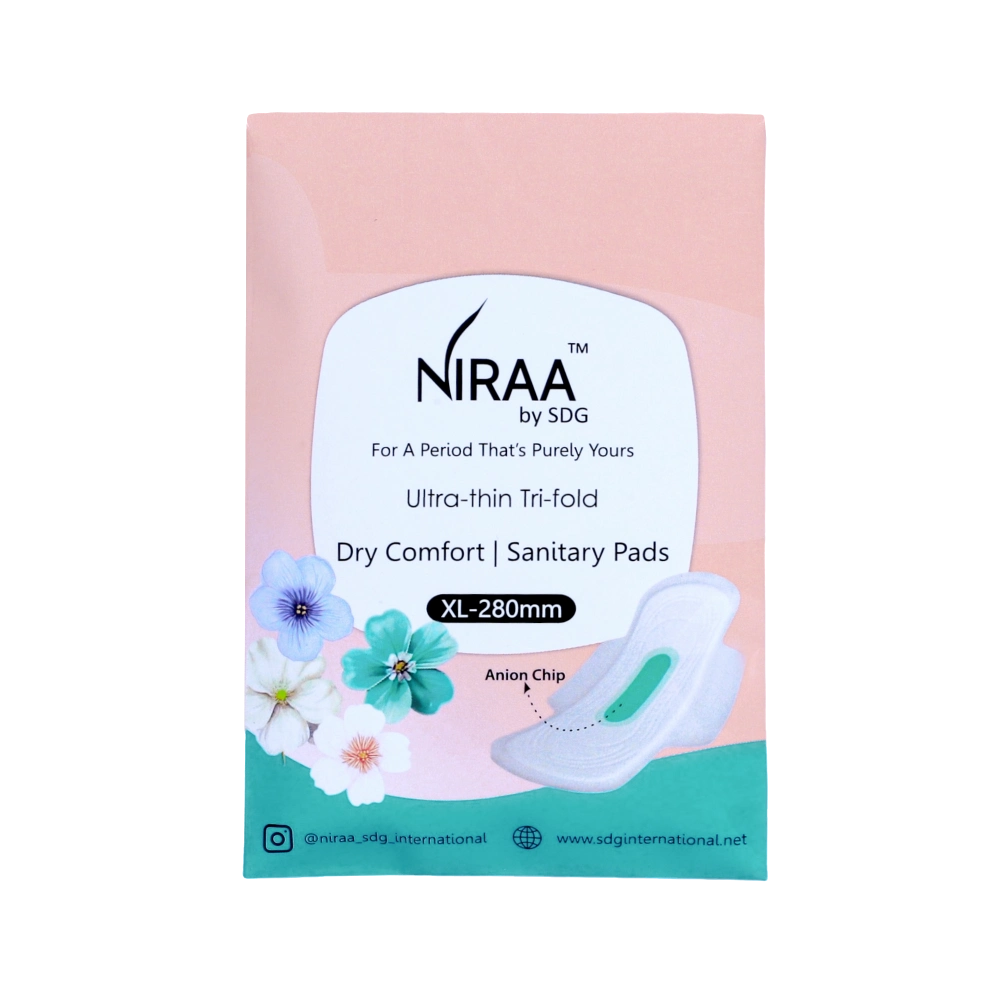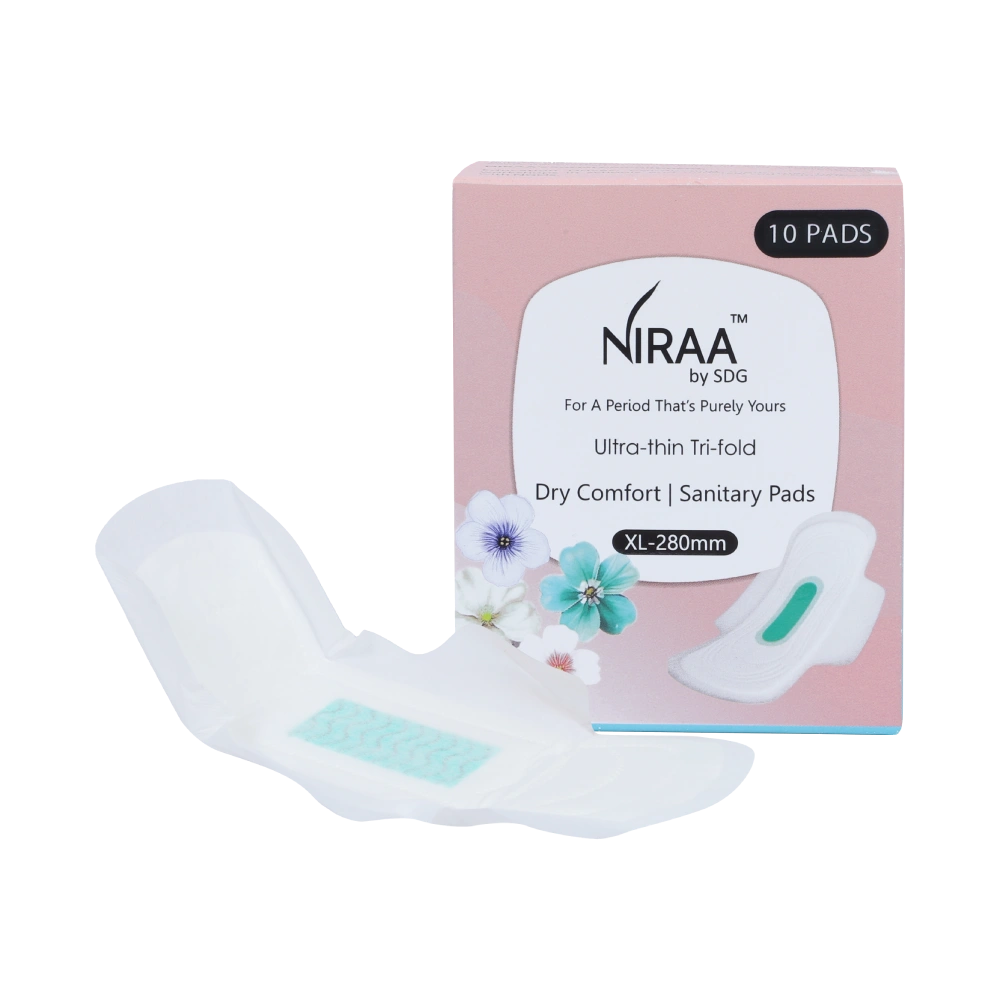In India, many school-going girls face tough challenges in managing their periods. Something as natural as menstruation still stops millions of girls from going to school every month. According to a report, over 23 million girls drop out of school after starting menstruation because they do not have access to proper menstrual hygiene products or safe facilities.
For many girls, the problem starts with a lack of awareness. They do not know what is happening to their body or how to manage it safely. On top of that, schools often do not have clean toilets or places to change. As a result, they feel uncomfortable, embarrassed, or afraid of being teased, so they miss classes or even stop going altogether.
Menstrual hygiene is not just about health. It is also about confidence, dignity, and equal opportunity. When girls have access to sanitary pads and proper knowledge, they can attend school without fear or discomfort. It helps them stay focused, confident, and ready to chase their dreams.
Access to sanitary pads and menstrual hygiene support can be transformative. It gives girls the confidence, comfort, and dignity to attend school regularly, focus on their lessons, and participate fully in academic life. By ensuring all school-going girls have what they need to manage menstruation, society can help keep their educational aspirations alive and lay the foundation for a brighter, more empowered future.
Understanding Menstrual Hygiene in India
Menstrual hygiene is a basic need, but for many girls in India, it remains a daily challenge. Across rural and urban areas, the topic is still surrounded by silence, myths, and discomfort. Understanding the barriers is the first step toward change.
Lack of Awareness and Education
Many girls in India experience their first period without any idea of what is happening. In many families, menstruation is not openly discussed, and schools often skip lessons about menstrual health. As a result, young girls feel scared, confused, and unprepared. Without the right information, they struggle to manage their periods safely and hygienically.
Cultural Taboos and Stigma
In several parts of India, menstruation is still seen as something impure. Girls are told to avoid temples, kitchens, or even social gatherings during their periods. Such restrictions make them feel isolated and ashamed. This stigma not only affects their self-esteem but also stops them from seeking help or talking about their needs.
Accessibility and Affordability Challenges
Even when girls know how to manage their periods, many cannot afford sanitary pads. In rural areas, pads are often unavailable or too costly. Because of this, girls rely on unsafe alternatives like cloth, ash, or husk, which can cause infections and discomfort. The lack of clean toilets and disposal facilities in schools adds to the problem, making it harder for girls to stay in class during their periods.
Improving menstrual hygiene is not only about providing products. It also means spreading awareness, improving school infrastructure, and helping girls feel comfortable talking about their bodies. With the right support, menstrual health can become a normal and manageable part of every girl’s life.
Missing School, Missing Dreams: The Impact of Poor Menstrual Hygiene
For many girls in India, periods mean missing school. Poor menstrual hygiene is one of the main reasons why thousands of girls skip classes every month. Without access to sanitary pads, clean toilets, or proper awareness, managing menstruation becomes difficult and stressful. Over time, these small gaps lead to big consequences for their education and future.
School Absenteeism and Dropout Rates
When girls do not have access to clean menstrual products or safe school facilities, they are forced to stay home during their periods. Missing a few days every month might not seem much at first, but it adds up. After a while, they fall behind in their studies, lose interest, and many drop out completely. Studies have shown that improving menstrual hygiene awareness and providing sanitary pads can significantly increase school attendance among girls.
Lack of Proper Sanitation Facilities
In many government and rural schools, toilets are either unhygienic or do not have enough privacy. Some schools do not even have separate toilets for girls. Without proper water supply or disposal bins, girls feel embarrassed and uncomfortable managing their periods. These poor conditions make it nearly impossible for them to stay in school during menstruation, which directly affects their attendance and performance.
Emotional and Social Impact
The fear of stains, teasing, or judgment often leads to anxiety and low confidence. Girls start avoiding activities, sports, and even group discussions in class. The silence around menstruation makes them feel isolated. Over time, this constant stress impacts their focus, self-esteem, and overall well-being.
Poor menstrual hygiene is not just a health problem. It affects a girl’s confidence, education, and future dreams. Ensuring access to sanitary pads and better school facilities can help them attend classes with comfort and dignity, keeping their learning journey uninterrupted.
Periods Shouldn’t Pause Learning: The Role of Pads in Education
For many girls, something as simple as a sanitary pad can help them stay in school. Sanitary pads make it easier to manage periods safely and comfortably, giving girls the freedom to attend classes, focus on studies, and take part in all school activities. When menstrual hygiene awareness and access are supported in schools, learning continues without interruption.
Pads as a Tool for Dignity and Comfort
Sanitary pads empower girls to manage their periods safely, discreetly, and confidently in a school environment. Benefits include:
- Reducing fear, embarrassment, and anxiety related to leaks or stains
- Improving comfort and ease of movement
- Encouraging regular classroom attendance and participation
Having sanitary pads available helps girls feel secure and confident, which leads to improved involvement in both academics and extracurricular activities.
Improving Attendance and Academic Continuity
Research and government programs show that access to pads in schools and communities:
- Reduces missed learning days
- Lowers dropout rates
- Helps girls stay on track with their studies
Example: District-level initiatives in Maharashtra reached over 120,000 girls with free or subsidized pads, significantly improving retention rates and attendance. The Ministry of Health’s Menstrual Hygiene Scheme shows that pad distribution and menstrual health education can keep girls enrolled and learning consistently.
Empowerment Through Education
When girls can manage their periods with confidence, they are more likely to:
- Stay in school
- Participate fully in classes and activities
- Build self-worth and awareness of their rights and health
Programs that combine pad distribution, health education, and open discussions about menstruation break cycles of shame and silence. Pads play a transformative role not just in education, but in helping girls dream bigger and achieve more in life.
Government and NGO Efforts Supporting Menstrual Hygiene
Menstrual hygiene is increasingly recognized as a public health and education priority in India. Both the government and NGOs have launched initiatives to ensure girls have access to affordable pads, safe facilities, and accurate information.
Government Initiatives
- Menstrual Hygiene Scheme (MHS): Provides low-cost sanitary pads to adolescent girls in rural areas and trains health workers to educate families.
- State Programs: States like Maharashtra and Tamil Nadu distribute free or subsidized pads in schools, improving attendance and hygiene awareness.
NGO Contributions
- Goonj: “Not Just a Piece of Cloth” campaign distributes pads and educates communities.
- Menstrupedia: Provides resources to both girls and boys, helping normalize conversations around menstruation.
- Udayan Care: Organizes menstrual hygiene campaigns, distributes sanitary pads to girls, and collaborates with organizations to educate young women about menstrual health.
Community programs often combine product distribution with education, empowering girls to make informed choices and feel confident discussing their menstrual health.
Public-Private Collaboration
Partnerships between governments, NGOs, and private companies help improve affordability and sustainability:
- Promoting eco-friendly pads
- Supporting local women’s self-help groups to produce pads
- Integrating menstrual education into school health programs
These efforts together create an inclusive and eco-conscious ecosystem for menstrual care, making it easier for girls to stay in school and maintain hygiene safely.
Toward Sustainable Menstrual Hygiene and an Empowered Future
Creating a supportive and sustainable menstrual hygiene environment is about more than just providing sanitary pads. It is about giving girls and women the tools, knowledge, and confidence to manage their periods safely, comfortably, and with dignity.
Promoting Eco-Friendly Menstrual Products
Sustainable pads made from natural or biodegradable materials help reduce plastic waste and protect the environment. Choosing eco-friendly options not only benefits health but also encourages responsible habits. These products often support local women’s self-help groups, creating opportunities for employment and entrepreneurship.
Building a Supportive Ecosystem
Education, awareness, and community involvement are key to making menstrual hygiene a normal part of life. Parents, teachers, and communities can help girls feel comfortable discussing their periods and accessing the products they need. By creating an open and supportive environment, society ensures that no girl has to miss school because of menstruation.
Empowerment Through Access and Awareness
When girls have both access to pads and knowledge about menstrual hygiene, they can stay in school, participate confidently in all activities, and plan for their future without limitations. Sustainable practices combined with education and awareness create a positive cycle of empowerment, health, and opportunity for girls across India.
Conclusion: Let Every Girl Dream Without Limits
Menstrual hygiene is more than a health issue. It is essential for education, confidence, and gender equality. When girls have access to sanitary pads, clean facilities, and accurate information, they can stay in school, focus on learning, and participate fully in life.
Periods should never pause a girl’s dreams. By supporting menstrual hygiene, communities give girls the chance to achieve their goals, build self-confidence, and take control of their future.
Every effort counts. Providing pads, improving school facilities, raising awareness, and challenging taboos all help ensure no girl has to miss school because of her period.
